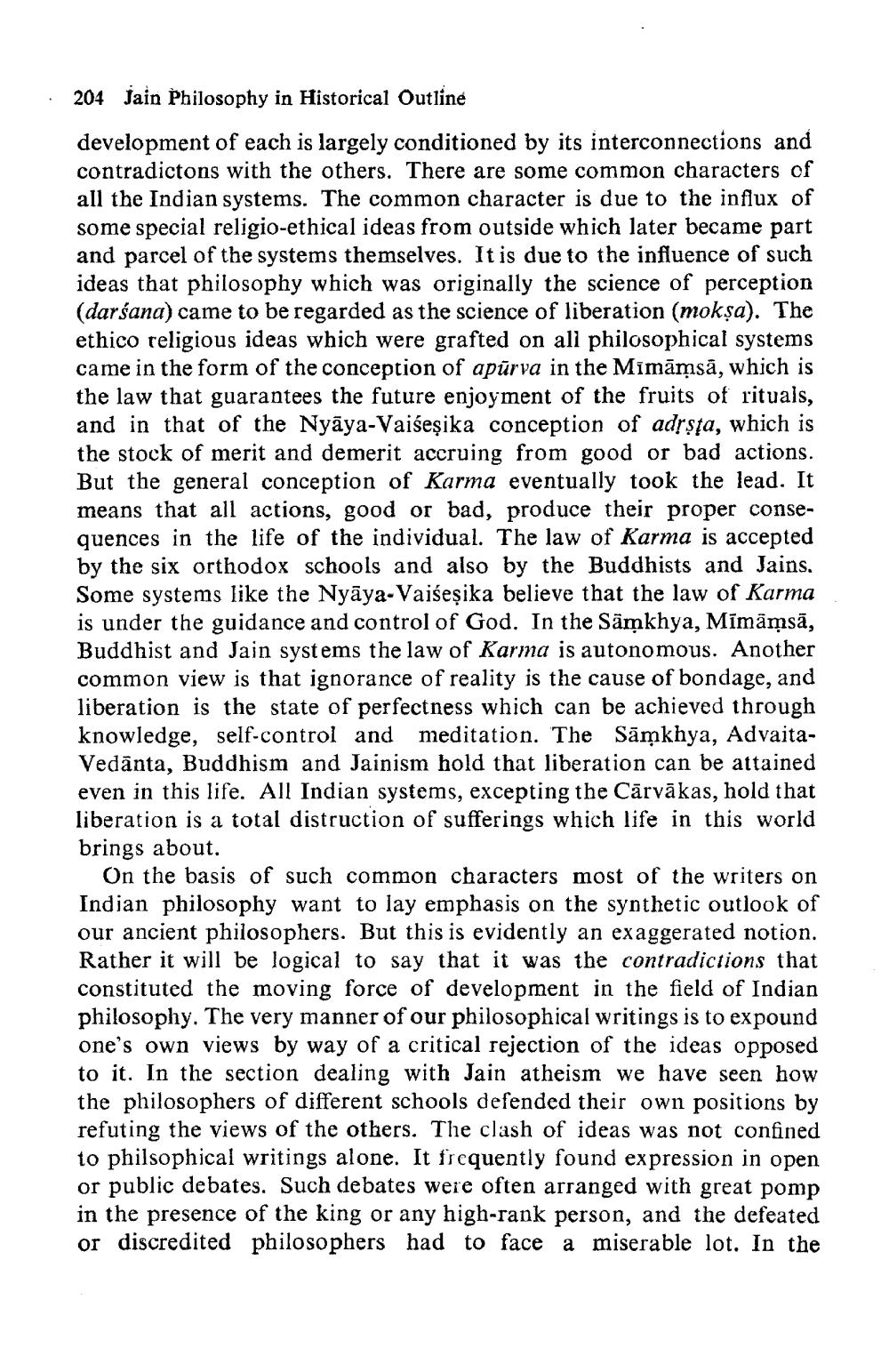________________
204 Jain Philosophy in Historical Outline development of each is largely conditioned by its interconnections and contradictons with the others. There are some common characters of all the Indian systems. The common character is due to the influx of some special religio-ethical ideas from outside which later became part and parcel of the systems themselves. It is due to the influence of such ideas that philosophy which was originally the science of perception (darśana) came to be regarded as the science of liberation (mokşa). The ethico religious ideas which were grafted on all philosophical systems came in the form of the conception of apūrva in the Mīmāmsā, which is the law that guarantees the future enjoyment of the fruits of rituals, and in that of the Nyāya-Vaišeşika conception of adrşğa, which is the stock of merit and demerit accruing from good or bad actions. But the general conception of Karma eventually took the lead. It means that all actions, good or bad, produce their proper consequences in the life of the individual. The law of Karma is accepted by the six orthodox schools and also by the Buddhists and Jains. Some systems like the Nyāya-Vaiseșika believe that the law of Karma is under the guidance and control of God. In the Samkhya, Mīmāmsā, Buddhist and Jain systems the law of Karma is autonomous. Another common view is that ignorance of reality is the cause of bondage, and liberation is the state of perfectness which can be achieved through knowledge, self-control and meditation. The Sāmkhya, AdvaitaVedānta, Buddhism and Jainism hold that liberation can be attained even in this life. All Indian systems, excepting the Cārvākas, hold that liberation is a total distruction of sufferings which life in this world brings about.
On the basis of such common characters most of the writers on Indian philosophy want to lay emphasis on the synthetic outlook of our ancient philosophers. But this is evidently an exaggerated notion. Rather it will be logical to say that it was the contradictions that constituted the moving force of development in the field of Indian philosophy. The very manner of our philosophical writings is to expound one's own views by way of a critical rejection of the ideas opposed to it. In the section dealing with Jain atheism we have seen how the philosophers of different schools defended their own positions by refuting the views of the others. The clash of ideas was not confined to philsophical writings alone. It frequently found expression in open or public debates. Such debates were often arranged with great pomp in the presence of the king or any high-rank person, and the defeated or discredited philosophers had to face a miserable lot. In the




